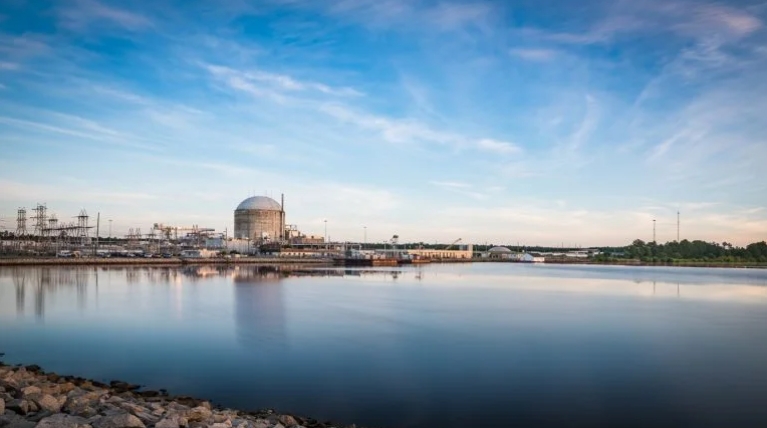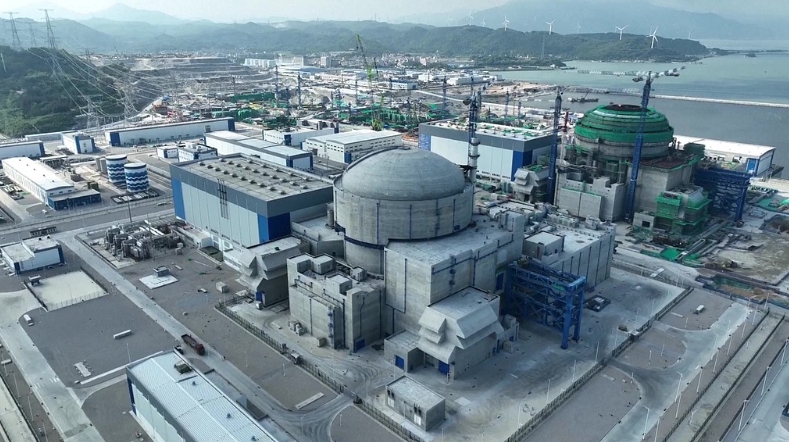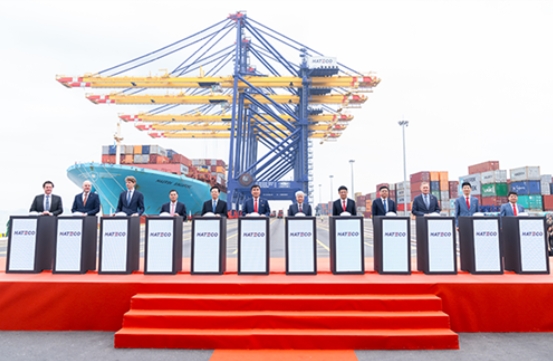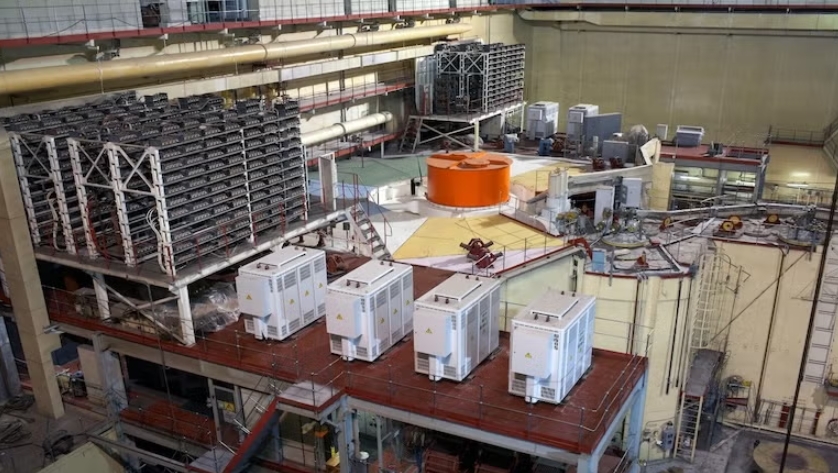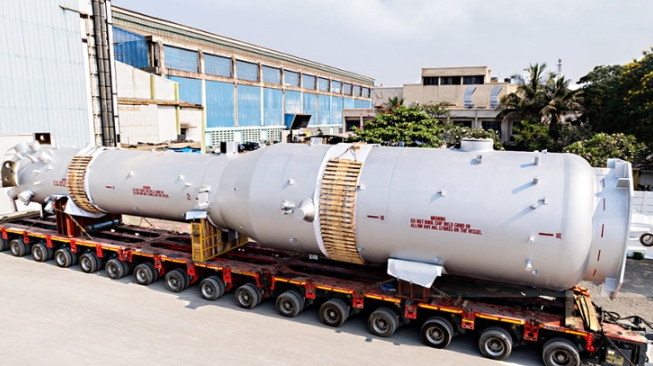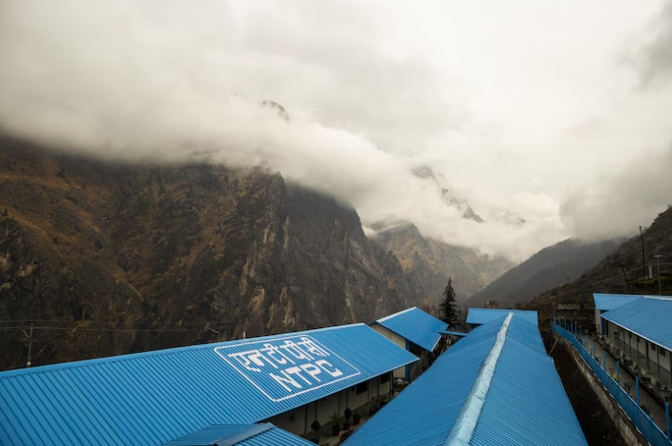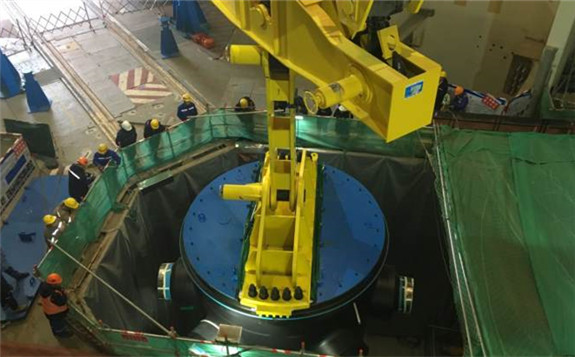 Installation of the reactor pressure vessel of Hongyanhe unit 6 in December 2018 (Image: LHNP)
Installation of the reactor pressure vessel of Hongyanhe unit 6 in December 2018 (Image: LHNP)
The Hongyanhe plant is owned and operated by Liaoning Hongyanhe Nuclear Power Company (LHNP), a joint venture between CGN and State Power Investment Corporation, each holding a 45% stake, with the Dalian Municipal Construction Investment Co holding the remaining 10%.
In a 27 December statement to the Hong Kong Stock Exchange, CGN said LHNP had "implemented a number of technical improvement measures in the construction process of the project with a view to realising the high-quality operation of its units and ensure the safe and stable operation of its units when put into operation". It added that LHNP had completed an assessment of the construction-related risks of Hongyanhe units 5 and 6, and "after due consideration", had decided to "adjust the construction plan of the project".
Construction of Phase I (units 1-4) of the plant, comprising four CPR-1000 pressurised water reactors, began in August 2009. Units 1 and 2 have been in commercial operation since June 2013 and May 2014, respectively, while unit 3 entered commercial operation in August 2015 and unit 4 in September 2016.
Phase II of the Hongyanhe plant - units 5 and 6 - comprises two 1080 MWe CGN-designed ACPR-1000 reactors. Construction of unit 5 began in March 2015 and that of unit 6 started in July the same year. Cold functional testing of unit 5 began on 10 October last year, marking the start of its commissioning phase, while unit 6 is in the equipment installation phase.
The ACPR-1000 - a three-loop unit with double containment and core-catcher - was launched by CGN in November 2011. In 2012 central planners in Beijing directed China National Nuclear Corporation and CGN, to 'rationalise' their reactor programmes. This meant CNNC's ACP1000 and CGN's ACPR-1000 were 'merged' into one standardised design - the Hualong One (HPR1000). Yangjiang units 5 and 6 were the first ACPR-1000 units to enter commercial operation, in July 2018 and July 2019, respectively. The ACPR-1000 is also being built as units 5 and 6 of the Tianwan plant, which are due to start up in 2020 and 2021.

